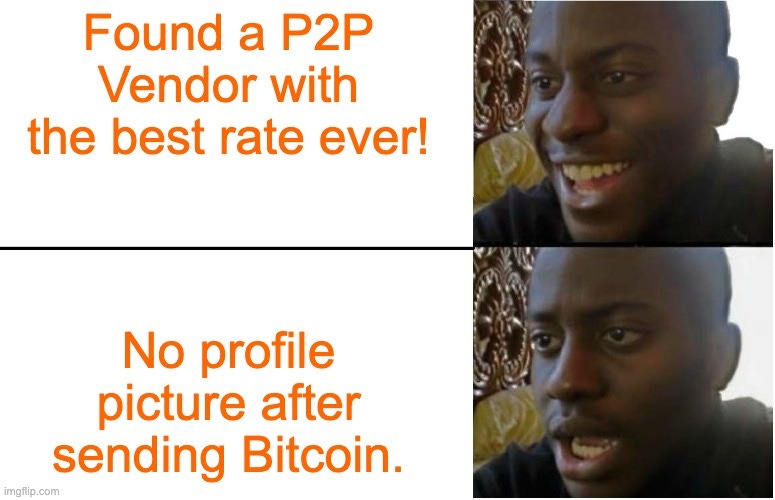
Ever since the clampdown on financial institutions in Nigeria from facilitating cryptocurrency transactions by the Central Bank of Nigeria, P2P trading became quite a popular way for crypto traders and investors to offramp and onramp into crypto.
This method of exchange is done directly between buyers and sellers or may use a third pay as an escrow. The use of third-party exchanges, although effective, can be quite expensive and time-consuming.
However, there has been a proliferation of P2P trading scams from fraudulent platforms and so-called crypto vendors out there and you do not want to be a victim.
Every trader wants a safe, affordable, fast, and efficient way to buy and sell cryptocurrencies and that is exactly what P2P trading platforms provide.
What is P2P Trading?
On October 31, 2008, Satoshi Nakamoto, the originator of Bitcoin published the Bitcoin whitepaper. In it, bitcoin was stated as “A purely peer-to-peer version of electronic cash would allow online payments to be sent directly from one party to another without going through a financial institution.” This is considered as the bedrock for P2P trading because bitcoin transactions would be done directly without a third party.
Peer-to-peer (P2P) trading AKA Person-to-Person is an exchange method used in buying and selling cryptocurrencies such as Bitcoin, USDT, and Ethereum. It allows buyers and sellers to make transactions without the need for a third party directly or if any, functions as the escrow.
To do this, the buyer sends fiat payment (fiat is a legal tender or currency issued by a government, for example, Naira, U.S. Dollars, and British Pounds,) directly to the seller who then transfers the cryptocurrency.
How Does P2P Trading Work?
P2P trading generally works in two ways. The first is the traditional method in which cryptocurrencies are bought and sold directly between persons without a third party/escrow.
For example, if you have $100 worth of Bitcoin to sell for Naira, you find a trusted and reliable buyer who is willing to buy your Bitcoin at an agreed rate (assuming the agreed rate is N1185 per Dollar). You transfer the Bitcoin to the buyer’s wallet while the buyer transfers the cash equivalent to your bank account.
Another method is using P2P trading platforms which act as escrow between buyers and sellers; matching them, and charging small fees for completed transactions. This feature can be seen in both centralized and decentralized exchanges.
Strategies to Earn from P2P Trading
To get started in P2P trading, all you have to do is open an account on a platform that has a P2P platform like Binance and Bybit. It is very important to ensure that the platform you choose is secure and trusted.
Each of these platforms has different ways of earning money via P2P trading, however, they all involve a direct exchange of digital currencies between buyers and sellers.
There are a variety of ways to make money using the peer-to-peer trading platform. You could develop a different method of making money by yourself. Some of the methods include:
- Making use of the payment options available on the platform.
Buying crypto with popular payment options usually comes closer to market price. Now selling these coins using a less popular payment method allows you to make a profit from buyers who are willing to pay extra for convenience.
- Arbitrage Trading
Arbitrage involves buying crypto from a certain market for a low price and then selling it in a different market for a higher price. Like buying USDT at N1170 and selling at N1180 on Binance.
- Using the P2P Affiliate Programs
Most peer-to-peer platforms offer affiliate programs to help you earn passive income. For example, you can earn by introducing P2P traders on Bybit.
What Are the Benefits of P2P Trading
- Cost-Efficient
P2P trading has reduced the use of expensive third-party services.
- Fosters Business Relationships
This method of trading creates opportunities for buyers and sellers to form business relationships. For example, if Seller A had a smooth transaction with Buyer B, they would love to do more deals together.
- Safer Transactions
P2P trading platforms are often encrypted and secure. This makes room for safer transactions among users.
Mistakes to Avoid When Trading With P2P
A lot of fraudsters have devised means to scam crypto traders of their money/ assets via the peer-to-peer exchange method. In order not to fall victim to such fraudulent activities, there are certain mistakes you must not make.
- Being Hasty
As the popular saying goes “Patience is a virtue”. You must not rush to purchase digital currencies especially if the prices shown are questionably low.
- Using an Untrusted P2P Trading Platform or Vendor
Whatever platform you decide to trade with, make sure it is trusted and secure. There are a lot of fraudulent platforms and so-called crypto vendors out there and you do not want to be a victim.
- Using Third-Party Platforms to Settle Transactions
Sometimes, scammers will insist that the conversation be moved from the P2P platform to a third-party platform (emails, chat apps, and texts) with the excuse that it is more convenient. Do not oblige.
- Releasing Funds Before Confirming Payment
Fraudsters now send fake screenshots of confirmed payments so endeavor to check your account/wallet balance before you release funds.
- Having Transactions With an Untrusted Party
Never ignore that feeling in your gut that tells you not to trade with a certain party no matter how tempting the crypto listings or ads may be.
Conclusion
The most beneficial thing about Peer-to-Peer trading is that it gives you full control over your funds/assets. And so, the more creative you are, the more business opportunities you might encounter. While P2P trading might seem more profitable, it is important to do your research to avoid scams and loss of funds.
Stay in the know for all things Web3! Subscribe to our newsletter and become part of our vibrant community. Get exclusive updates and never miss any exciting developments.
Follow Us on All Platforms



